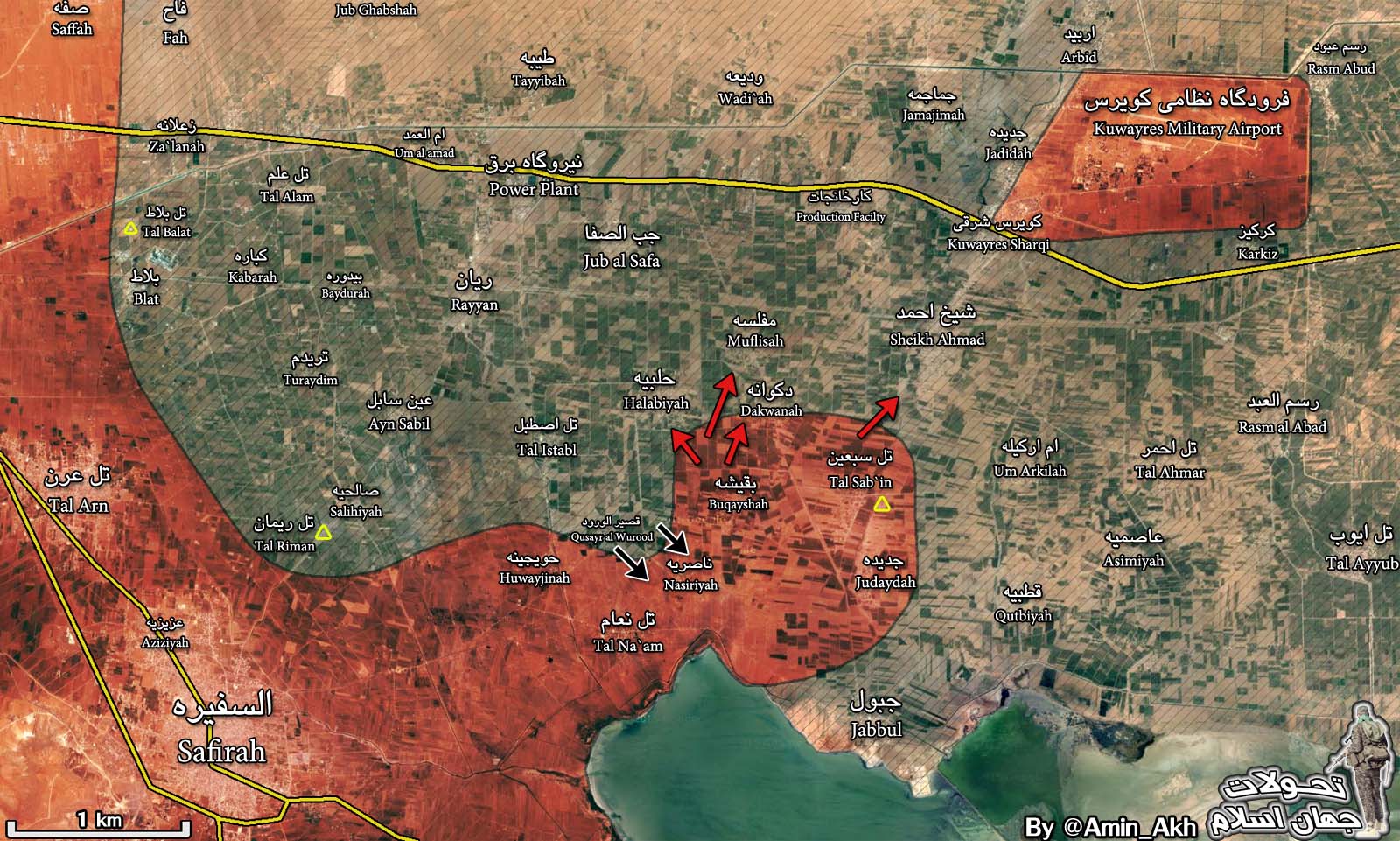Jura The idiot
General
... again, just according to Internet sources!an update again:
... a counter-strike in the area, by ISIL against
...
it was stopped by the Regular Army, which was pushing against the Kuweiris Airbase
https://www.sinodefenceforum.com/isis-isil-conflict-in-iraq-syria-thread.t6913/page-195#post-370679
at the same time, so what's happened was the ISIL units on retreat from As-Safira area attacked at the flank(s) of that attack ...
the Regular Army had to regroup within the bulge visible on the map below (it seems there was another ISIL attack, not indicated in this map though, against it from around Jabbul Lake) ...
and the outcome of what's been going west to Aleppo for two weeks now (?) may be decided somewhere around Sheik Ahmad, which is the place (a village?) in the middle between the bulge and the airbase:

I don't have two (or more) sources for what's going on elsewhere, so will leave it at that, and hope that's the most important point right now, but who knows, maybe I'm missing something completely ... (but it seems there's a tiny group of people here who read this
oh, and weather worsened (for Russian CAS)
